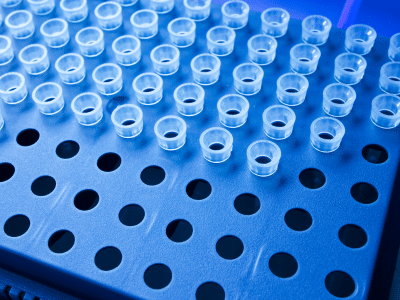The micropipette is a precision tool for volumetric measurements that must be accurate and reproducible. The stock of micropipettes is therefore a crucial piece of instrumentation for your workbenches.
Many factors are essential in the choice of a micropipette:
- ergonomics
- the volume range
- performance: precision and accuracy
- quality of materials
In addition, once your laboratory is equipped, you will need to validate compliance throughout their use.
What are the key elements in managing the micropipette fleet ?
There are at least three essential elements to good micropipette management:
- Knowing the exact performance of your pipettes
- Knowing the exact performance of your pipettes
- Be sure to monitor the behaviour of the pipettes over time
Therefore, it is important to determine your selection criteria when purchasing your pipette fleet to ensure a long lifetime with good long-term measurement stability.
How to define the make-up of your micropipette fleet ?
In addition to the technical aspect of the micropipette, it is essential to identify all the processes that involve it in order to list the volumes to be taken and their impact on the analytical result.
This step makes it possible to determine the number of micropipettes, the volume ranges, as well as the need or not to have them calibrated under Cofrac accreditation.
Regarding the volume ranges, it is preferable to work on the median volume of the micropipettes in order to get the best performance from the instrument.
As soon as these elements are clearly defined, the laboratory will purchase its fleet of micropipettes.
For this purpose, it is possible to opt for the purchase of instruments or to prefer a rental system.
Micropipette fleet: purchase or rental ?
If purchased, the equipment can be kept for many years. It is sufficient for the laboratory to have chosen a robust instrument.
The laboratory is fully responsible for the equipment and must ensure that the calibration is correct before the instruments are put into service.
During the entire period of use, control procedures must be established by the laboratory to guarantee the conformity of the volume measurements.
In the case of micropipettes calibrated under Cofrac accreditation, it is recommended that the Cofrac control be renewed every year.
The laboratory must therefore manage the calibration dates of all its equipment and define the period of validity to trigger the renewal of the metrological control according to the procedures in place.
It should be noted that the performance of these checks by an external laboratory will require a rotation of pipettes in order not to jeopardise daily analyses. It is therefore recommended to provide a set of additional pipettes to ensure continuity of activity.
What are the benefits ?
The rental allows you to benefit from recent instruments throughout the rental contract with services included such as metrological controls at the end of use according to the contract chosen.
The fleet is under the responsibility of the laboratory. It must therefore ensure the conformity of the calibration before the instruments are put into service. The laboratory must establish control procedures to guarantee the conformity of the volume measurements. You will carry out this control during the entire period of use.
Opting for rental allows the laboratory not to manage the renewal dates of the metrological controls since the contract includes this follow-up and recall service.
The micropipettes are replaced according to the needs of the laboratory, which may change from one year to the next. Once the new fleet is in service in the laboratory, the old pipettes are taken back for a final volumetric check to determine compliance after 1 year of use.
Each laboratory has its own way of working. The management of the instrument pool is strategic to optimise the organisation of your laboratory and the analysis flows. What if an experienced partner accompanied you? Have you heard of Evernew?




